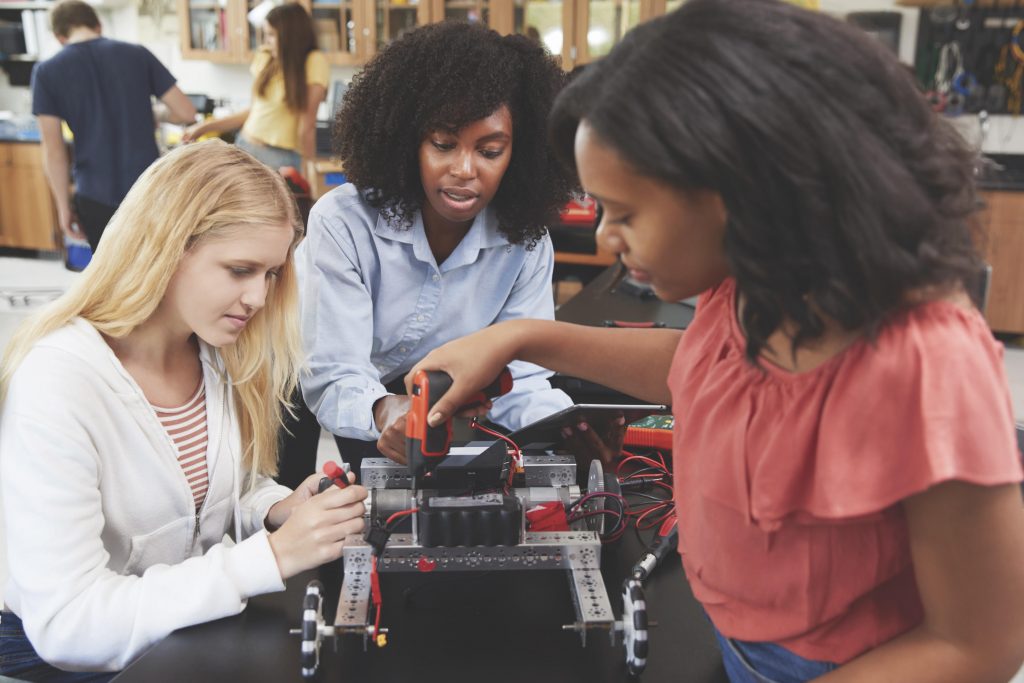COVID-19 is making inequity in STEM worse, says UK parliamentary report

Teacher With Female Pupils Building Robotic Vehicle In Science Lesson
By Monkey Business, Adobe Stock Images
“The UK Government and STEM organisations should commit to leading a ‘STEM Diversity Decade of Action’ to tackle the historic and systemic underrepresentation of minoritised groups.”
This is one of the recommendations set out in a report published by the All-Party Parliamentary Group on Diversity and Inclusion in STEM, following an inquiry launched in 2020.
The report found that there is considerable inequity in STEM and COVID-19 is making it worse.
Other key findings are:
• The STEM workforce is less diverse than the wider workforce but consistent data collection and sharing is lacking.
• There is a need for the Government to take a multi-pronged approach to drive equity in the STEM workforce.
• Intersectional barriers continue from STEM education into the workforce.
• There is awareness of structural inequity in some large STEM organisations, but no consensus on solutions.
Teacher With Female Pupils Building Robotic Vehicle In Science Lesson
By Monkey Business, Adobe Stock Images
Academics working on equity in STEM
Dr Liz Johnson is a STEM education specialist based at Southern Research in Alabama, USA. She implements an outreach programme that works to enhance 6th-12th grade STEM education and inspire young people to embrace the joy of all things STEM.
Dr Corliss Thompson of Northeastern University in the USA is an advocate for experiential learning, which she believes can help combat inequity in STEM recruitment and careers.
To attract Native American students to STEM-related courses, Dr Darren Ranco, from the University of Maine, USA, has developed a new curriculum which blends concepts from both Indigenous knowledge and western science.
Dr Brice Orange and Dr David Morris form part of the team based at the Etelman Observatory in the US Virgin Islands, an establishment focused on educating a new generation of students in physics, astronomy and engineering.
Dr Tanya Josek, based at Illinois State University in the US, forms part of Project EDDIE which uses large datasets to build quantitative reasoning. The project aims to empower students and provide a realistic view of what it means to be a scientist.
The POLAR STAR project is designed to help teachers successfully introduce STEAM in their classes. It combines state-of-the-art pedagogies and exciting activities to teach ‘science as a whole’ and help teachers answer the “why do we have to learn this?” question.
Read more about this:
British Science Association: Inquiry into Equity in the STEM Workforce Final Report

